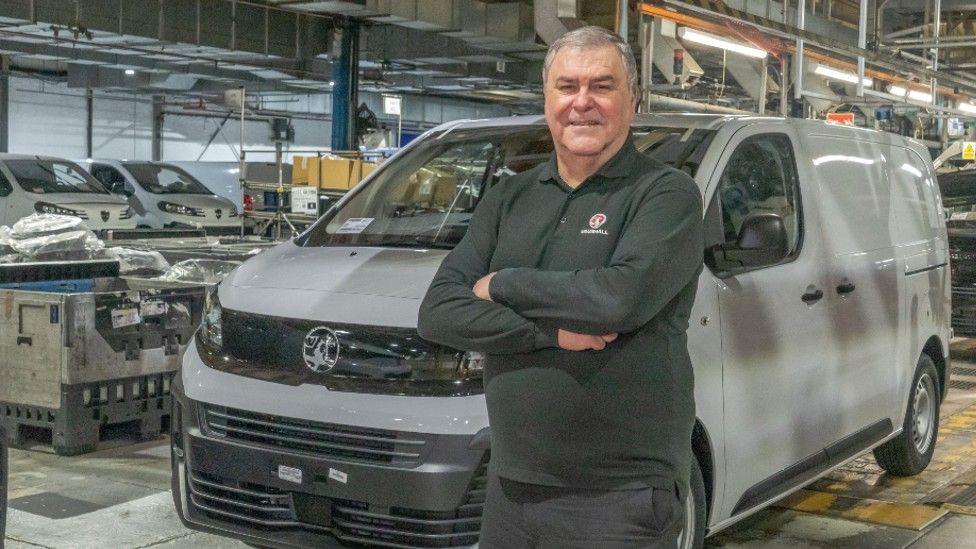Vauxhall's troubles began with Brexit - former boss
Mark Noble stepped down as Luton plant director earlier this year and is "surprised and shocked" that it is being closed
- Published
The former boss of Vauxhall in Luton said the factory’s "troubles began with Brexit", after news that the van-making plant would close.
Mark Noble said parent company Stellantis had "lost an excellent workforce in Luton" and the closure would affect 1,500-2,000 jobs when taking account of suppliers.
Confusion over Brexit tariffs affected operations at Luton and at Ellesmere Port in Cheshire, he said, while he also blamed the government for not providing incentives to buy electric vehicles (EVs).
A government spokesperson said it was spending £300m to "drive uptake of zero emission vehicles," while Stellantis said there would be "meaningful dialogue with our union partners to agree the next steps".
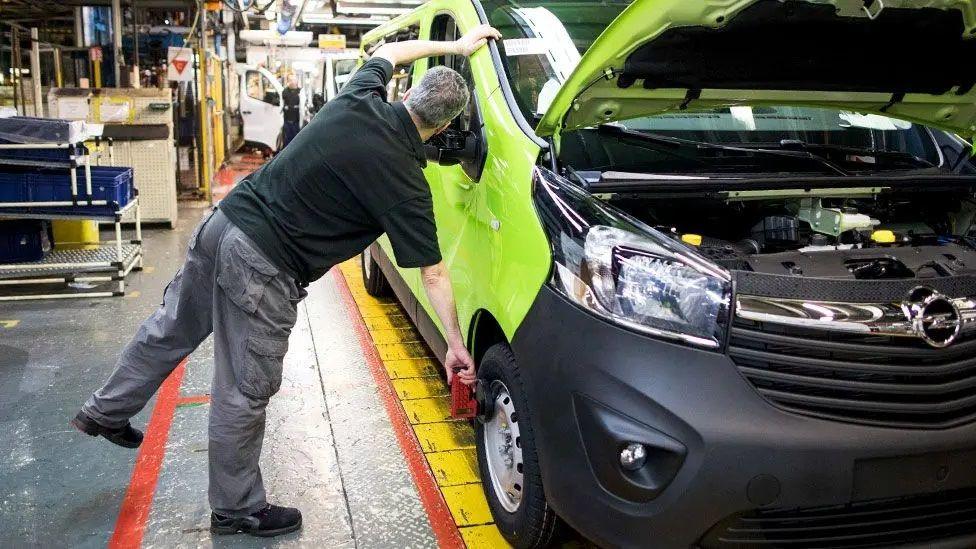
Some 1.5 million vans were built at Luton's Vauxhall plant, Mr Noble said
Mr Noble said it was "extremely sad" to lose "part of Luton’s history", since the factory on Kimpton Road first opened in 1905.
He joined Vauxhall in 1988 and became director of Ellesmere Port and then Luton before retiring in 2022.
"The trouble for both the UK plants started with Brexit. It caused a lot of uncertainty within business, and business doesn’t like uncertainty," he said.
"When you’ve got two plants that export 80% of their build, then tariff confusion and no clarity really hurt the two plants.
"It became clear that exports would probably be reduced due to the implication of tariffs."
Vauxhall workers tell of surprise at closure plans
- Published28 November 2024
Ministers told in July of 'likely' Vauxhall closure
- Published27 November 2024
'I found out I lost my Vauxhall job on WhatsApp'
- Published27 November 2024
Another factor was the transition to electric vehicles, said Mr Noble, who oversaw the electrification process at both plants.
Stellantis said difficulties meeting EV sales targets was one reason for closing the Luton factory.
Mr Noble claimed governments had "no plan" to help car manufacturers match supply with demand.
"There's no incentives offered by the previous [Conservative] government or this [Labour] government to buy an electric vehicle. I think we are the only Western European country to not incentivise buying an EV or installing a charger," he said.
"The charging infrastructure is virtually non-existent. If you go to Amsterdam, you can see cars being charged on every street, but in London there are very few."
He added that cheap EV imports from China - subsidised by its government - were also a threat.
"You have to look at Australia – there is no Australian car industry now. They didn't put tariffs on the Chinese cars - you need tariffs on imports to make it an even playing field," he said.
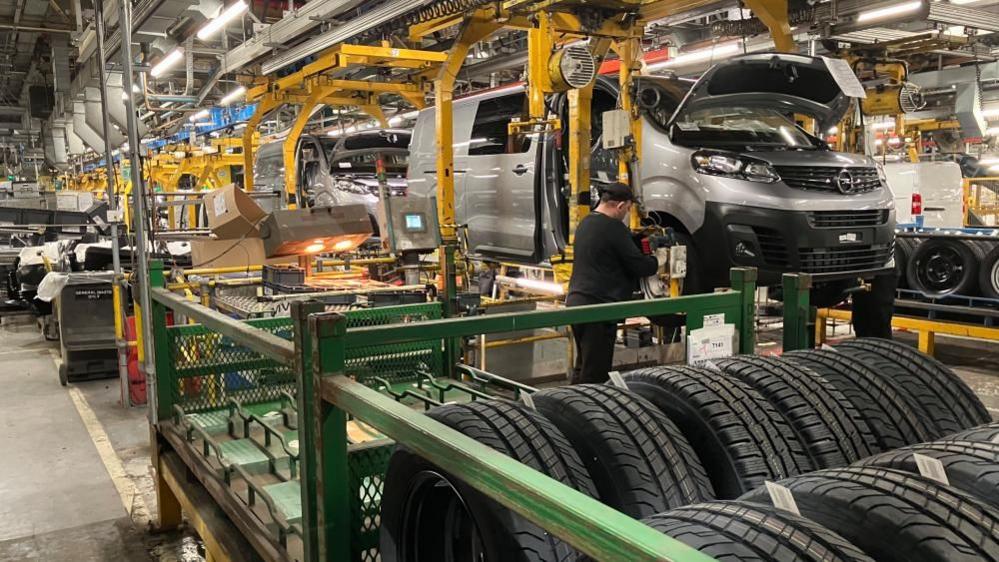
Vauxhall started making cars in 1903 in south London, but moved to a new factory in Kimpton Road in the town two years later
The government said it announced £300m in the budget to "drive uptake of electric vehicles" and £2bn to support the transition within manufacturing.
It will invest £200m to "accelerate EV chargepoint rollouts across England".
A government spokesperson said: "We have a longstanding partnership with Stellantis and we will continue to work closely with them, as well as trade unions and local partners on the next steps of their proposals."
Stellantis said: "There will be a meaningful dialogue with our union partners to agree the next steps. All situations will be taken into account and the company commits to providing the very best level of support for every single person impacted by this."
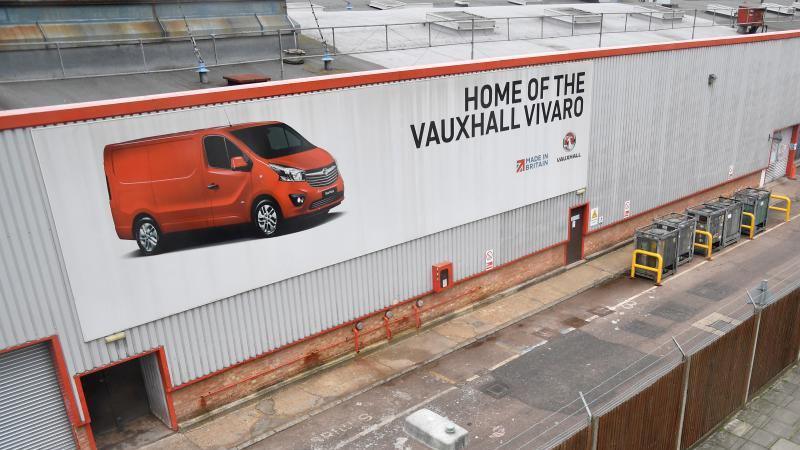
Mr Noble prepared the Luton plant to produce an electric Vauxhall Vivaro van from 2025
Get in touch
Do you have a story suggestion for Beds, Herts & Bucks?
Follow Beds, Herts and Bucks news on BBC Sounds, Facebook, external, Instagram, external and X, external.
Related topics
- Published9 July 2023
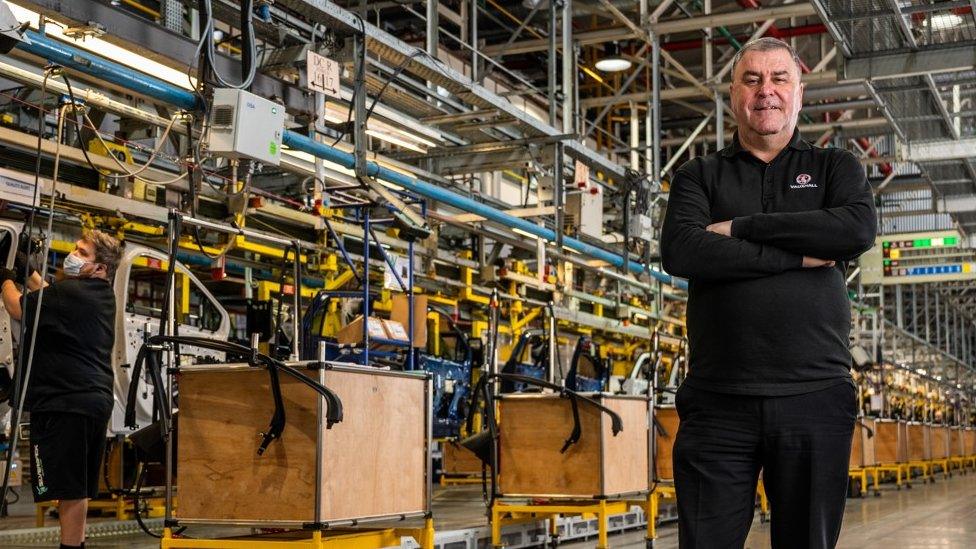
- Published26 November 2024
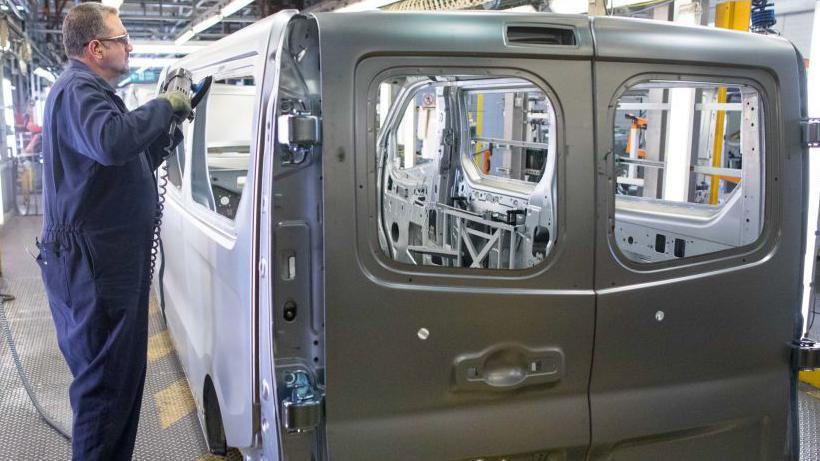
- Published27 November 2024
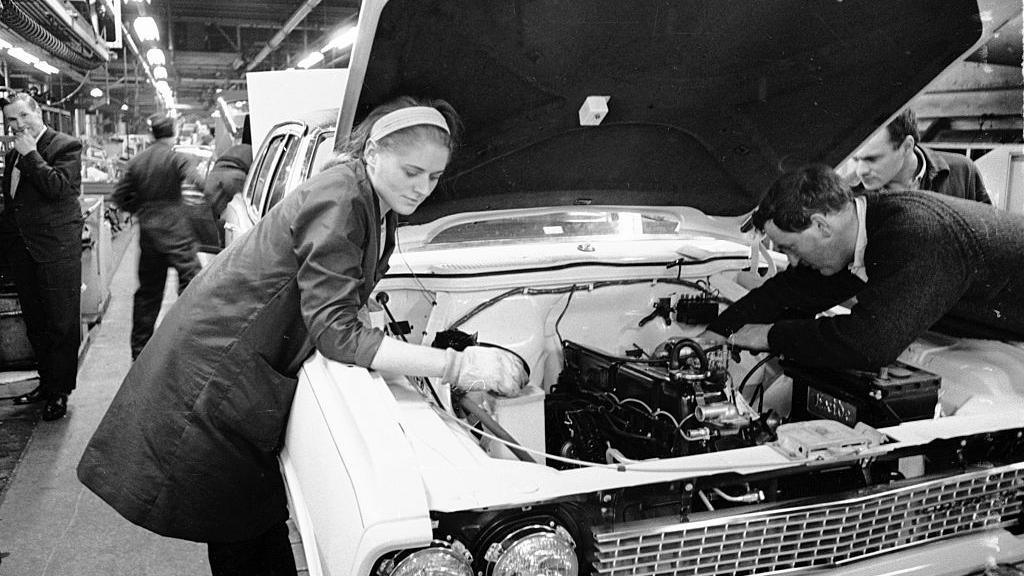
- Published25 April 2024
